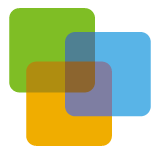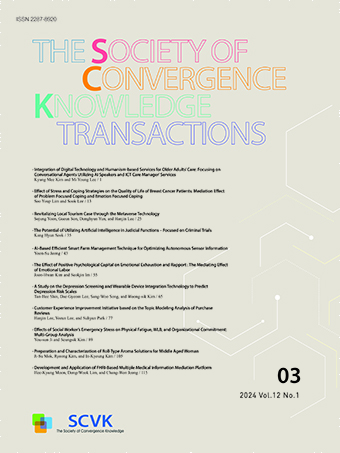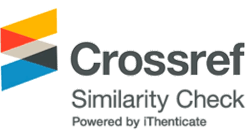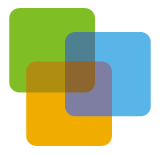Research Article
Abstract
References
Information
본 연구는 SW 교육 도구 / 학습 학교가 운영하는 SW 교육 활동이 학생들의 사고와 컴퓨팅 인식 및 컴퓨터 사용을 향상시킬 수 있도록 SW 교육 도구를 사용하여 효과적인 수업 준비와 수업 시간을 찾기 위해서 실행되었다. 본 연구에서는 SW 교육 연구 / 선도 학교 중에서 15 개의 중학교를 선정하였으며 각 학교의 SW 교육에 대한 교과 과정, 운영 계획 및 운영 보고서를 참고하여 결과를 분석 하였다. 이를 바탕으로 SW 수업을 위한 다양한 실험 도구와 시간을 준비하여 수업에 적용하였다. 마지막으로 테스트 결과를 바탕으로 학교 별 교육 활동을 비교 분석하였다. 그 결과 SW 연구 / 선도 학교는 다양한 과목(정보 과목 SW, 일반 과목 SW 융합 교육, 방과 후 SW 교육 및 SW 체험 학습 활동)에서 컴퓨터 SW 커리큘럼을 운영하고 있으며, 이중에서 정보과목 SW에 속한 교육의 구성이 학습자의 컴퓨팅 사고 능력과 컴퓨터 사용 태도와 인식에 제일 큰 영향을 미친다는 것을 보여주었다.
This study attempts to find effective instructional arrangements and class time using SW teaching tools so that SW teaching activities run by SW teaching research / leader schools can improve students’ thinking and computing awareness and computer use. For this study, 15 middle schools were selected from the SW education research / leader schools, and the data of the curriculum, operation plan, and operation report on SW education in each school were referenced and the results were analyzed. Based on this, various experimental tools and time were prepared for SW class and applied to the class. Finally, based on the test results, we compared and analyzed educational activities by school. As a result, SW research / leader schools are operating computer SW curriculum in various subjects (information subject SW, general subject SW convergence education, after-school SW education and SW experience learning activities). Among them, the educational composition belonging to the information subject SW showed the greatest influence on learner’s computing thinking ability, computer use attitude and perception.
- Sung, Eunmo Chae, Yoojung Lee, Sunghye “Analysis of Types and Characteristics of Self-Directed Learning of Learners in Online Software Education” Published The Journal of Korean Association of Computer Education Volume 22, Issue 1, pp. 31-46, 2019.01, 1598-5016 (pISSN) .10.32431/kace.2019.22.1.004
- Lee, Youngseok Cho, Jungwon “Analysis of Correlation between Satisfaction and Academic Achievement of Software Education Based on Problem-solving Learning” Journal of Convergence for Information Technology, Volume 9, Issue 2, pp. 49-54, 2019, 86-4440 (eISSN).
- Maika I. Patino, Peggy Kraus, Martin A. Bishop “Implementation of patient education software in an anticoagulation clinic to decrease visit times for new patient appointments” Patient Education and Counseling Volume 102, Issue 5, pp. 961-967, 2019.10.1016/j.pec.2018.12.02330665730
- 길현영(2016). 소프트웨어정책연구소, ‘초중등 SW교육 추진 동향’ https://spri.kr/post/7884
- 교육인적자원부(2016). 선도학교 확대를 통한 소프트웨어 교육 본격 시작 보도자료
- 교육인적자원부(2015). 소프트웨어 교육 운영 지침(해설서 포함)
- Tim Bell, Jason Alexander, Isaac Freeman, and Mick Grimley, “Computer Science Unplugged: School Students Doing Real Computing Without Computers”, The New Zealand Journal of Applied Computing, and Information Technology Volume 13, Issue 1, pp. 20-29, 2009.
- 김종진,“교육용 프로그래밍 언어인 로고와 스크래치 교재 개발 및 비교 실험”, 한국콘텐츠학회논문지, 제10권 제7호, pp. 459-469, 2010.10.5392/JKCA.2010.10.7.459
- 조준필,“기술교육에서 중학생의 논리적 사고력 함양을 위한 스크래치 학습 프로그램 개발”, 한국기술교육학회지, 제12권 제1호, pp. 213-233, 2012.
- 신갑천,“스크래치를 활용한 로봇 프로그래밍 학습이 논리적 사고력과 문제해결력에 미치는 효과”, 경인교육대학교 교육대학원 석사학위 논문, 2010.
- 김재휘, “컴퓨팅 사고력 향상을 위한 EPL 및 피지컬 컴퓨팅 교육과정 개발 및 적용”, 청주교육대학교 석사학위 논문, 2016.
- 김혜진, “아두이노를 이용한 피지컬 컴퓨팅 기반의 프로그래밍 교육이 중학생의 창의적 문제해결력에 미치는 영향”, 한국교원대학교 대학원 석사학위 논문, 2016.
- 김나영, “SW교육 수업 구성이 컴퓨팅 사고력과 태도 및 인식 변화에 미치는 영향 분석”, 인천대학교 교육대학원 석사학위 논문, 2017.
- 동신여자중학교. “2015년도 소프트웨어교육 연구학교 운영 결과보고서”, 2015.
- Publisher :The Society of Convergence Knowledge
- Publisher(Ko) :융복합지식학회
- Journal Title :The Society of Convergence Knowledge Transactions
- Journal Title(Ko) :융복합지식학회논문지
- Volume : 7
- No :3
- Pages :97-105
- DOI :https://doi.org/10.22716/sckt.2019.7.3.038




 The Society of Convergence Knowledge Transactions
The Society of Convergence Knowledge Transactions







